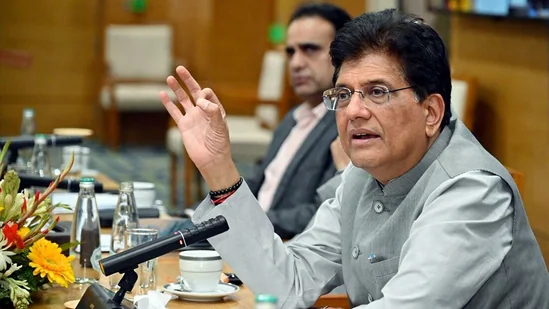Empowering Muslim Women: A Pillar for India’s Inclusive Future
- MGMMTeam

- Aug 1
- 4 min read
In a significant move toward building a more inclusive and equitable India, Union Minister for Minority Affairs and Parliamentary Affairs, Kiren Rijiju, has emphasized that empowering Muslim women is not merely a social responsibility but a national imperative. Speaking at a national consultation organized by the National Commission for Women (NCW) in New Delhi, Rijiju described the empowerment of Muslim women as central to India’s long-term developmental vision. He stated that true empowerment comes through awareness of one’s rights and the ability to participate equally in economic and social life.
Highlighting the importance of economic independence, Rijiju noted that financial strength naturally translates into social empowerment. He promised to personally follow up on the recommendations and discussions raised during the event, ensuring that they lead to real-world impact. His words underscored a broader shift in government policy, which is increasingly recognizing the need to uplift marginalized communities, particularly women, within India's Muslim population.

The Role of the National Commission for Women
The NCW’s event titled “Rights of Muslim Women in India” brought together a diverse range of stakeholders including legal experts, activists, scholars, and representatives from civil society. The consultation aimed to address the legal, economic, and social challenges faced by Muslim women and to find sustainable solutions through a combination of policy reform and community engagement.
On this occasion, NCW Chairperson Vijay Rahatkar reiterated the importance of giving Muslim women a platform to share their experiences and concerns. She asserted that justice, dignity, and human rights should be accessible to all women regardless of their background. Rahatkar also launched “Naya Daur”, a publication that serves as a guide for Muslim women by outlining their legal rights and available welfare schemes. The book is a step toward not just educating women about their rights but also providing a resource for policy thinkers and lawmakers.
Examining the Legal and Social Landscape
Legal experts participating in the consultation explored a wide range of issues under Muslim personal law, including maintenance after divorce, child custody, and succession rights. Many emphasized that although India recognizes plural legal systems, there is an urgent need to reform archaic practices and ensure gender justice.
One major highlight was the discussion on the Waqf (Amendment) Act, 2025, which introduces reforms that mandate women’s representation in Waqf Boards and aims to enhance transparency in the management of Waqf properties. The Act has been hailed as a progressive step, potentially opening up avenues for Muslim women to participate in religious and community leadership—an area long dominated by male authority.
Grassroots Activism and Community Participation
Beyond the legislative framework, community-based organizations have played a pivotal role in championing the cause of Muslim women. Groups like the Bharatiya Muslim Mahila Andolan (BMMA) have long been at the forefront of legal and social reforms. Their advocacy led to the criminalization of instant triple talaq and continues to push for the codification of Muslim personal law in a way that ensures gender equality.
Educational and religious institutions like Jamiat Ul Mominat, an Islamic seminary for women based in Hyderabad, are redefining religious roles by training women as muftis and legal advisors. These pioneering efforts are empowering women to interpret Islamic law for themselves, effectively breaking centuries-old patriarchal control over religious interpretation.
Economic Inclusion as a Driver of Change
Economic empowerment emerged as a recurring theme throughout the event. Rijiju and several panelists stressed that policy interventions must go beyond symbolic gestures and deliver practical benefits. Initiatives like the Skill Development Scheme for Minorities are already working to train Muslim women in vocational and entrepreneurial skills, while organizations such as SEWA (Self Employed Women’s Association) have demonstrated the power of collective economic action among marginalized women.
Recent data from various state-level indices also support the idea that female participation in the workforce can dramatically improve economic resilience. Cities like Lucknow and Kanpur have been identified as growth-friendly zones for women, thanks to local reforms in education access and microfinance availability.
Health, Dignity, and the Fight Against Bias
Empowerment cannot be limited to legal and financial dimensions. Speakers at the consultation also addressed health, emotional well-being, and societal attitudes. Muslim women across various regions have spoken out about everyday struggles ranging from menstrual health stigma to emotional stress caused by social exclusion and stereotyping. Forums such as the recent health awareness summit in Nagpur have shown that access to healthcare, mental health resources, and safe public spaces are as vital to empowerment as financial independence.
These concerns were echoed by health professionals and social workers who urged for the integration of mental and physical wellness programs into mainstream policymaking. They noted that emotional resilience is key to enabling women to challenge societal norms and demand their rightful place in both public and private life.
Conclusion: A New Chapter in Empowerment
The consultation hosted by the National Commission for Women is a timely and necessary initiative that aims to rewrite the narrative around Muslim women in India. While legislative progress such as the Waqf (Amendment) Act and landmark judgments like the triple talaq verdict have laid the foundation, true empowerment requires sustained effort across legal, social, educational, and economic domains.
The path ahead involves a dual commitment—by the government to deliver inclusive policies, and by civil society to drive change at the grassroots. Muslim women must be seen not as passive beneficiaries but as active participants and leaders in the journey toward India’s development. Only then can the vision of a truly inclusive and empowered society be realized.
(Sources: Hindustan Times, The Daily Guardian, SocialNews.XYZ)




Comments